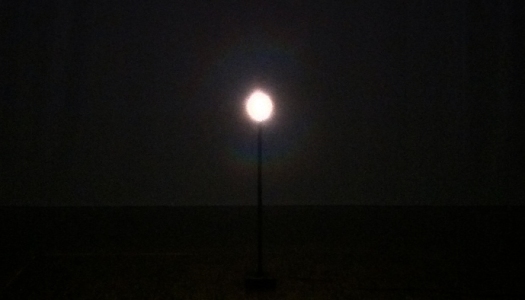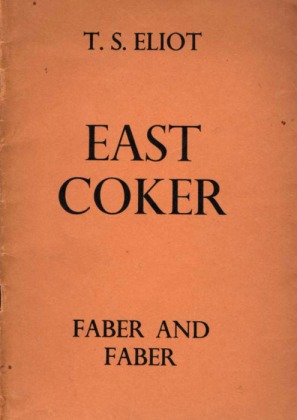I’m happy that the utopian prophecies of many of our early twentieth century novelists, poets, and playwrights proved fruitless. (I’m incredulous at their ability to deny the link between utopianism and slaughter.) But while their outlook continues to fail, their influence creeps and lingers. They hold a significant portion of the blame for a century of artless craftism, sloganeering, and diminishing audiences.
(Some of their critical and artistic descendants like to blame the audience. But I have found that those who blame the audience seem to have one thing in common: mediocrity.)
It’s easy for me to get depressed about this stuff, but, of course, that’s useless. And T.S. Eliot’s East Coker is my ever-present reminder that when you notice just how backwards things are, your own direction becomes clear.
It’s important to understand that Eliot is not being clever in this poem. He finds himself (and us) in the utopia of Shakespeare’s wyrd sisters, where “fair is foul and foul is fair.” So when he says “the darkness shall be the light,” he means it. He’s pointing the way.

from East Coker
.
O dark dark dark. They all go into the dark,
The vacant interstellar spaces, the vacant into the vacant,
The captains, merchant bankers, eminent men of letters,
The generous patrons of art, the statesmen and the rulers,
Distinguished civil servants, chairmen of many committees,
Industrial lords and petty contractors, all go into the dark,
And dark the Sun and Moon, and the Almanach de Gotha
And the Stock Exchange Gazette, the Directory of Directors,
And cold the sense and lost the motive of action.
And we all go with them, into the silent funeral,
Nobody’s funeral, for there is no one to bury.
I said to my soul, be still, and let the dark come upon you
Which shall be the darkness of God. As, in a theatre,
The lights are extinguished, for the scene to be changed
With a hollow rumble of wings, with a movement of darkness on darkness,
And we know that the hills and the trees, the distant panorama
And the bold imposing facade are all being rolled away—
Or as, when an underground train, in the tube, stops too long between stations
And the conversation rises and slowly fades into silence
And you see behind every face the mental emptiness deepen
Leaving only the growing terror of nothing to think about;
Or when, under ether, the mind is conscious but conscious of nothing—
I said to my soul, be still, and wait without hope
For hope would be hope for the wrong thing; wait without love
For love would be love of the wrong thing; there is yet faith
But the faith and the love and the hope are all in the waiting.
Wait without thought, for you are not ready for thought:
So the darkness shall be the light, and the stillness the dancing.
Whisper of running streams, and winter lightning.
The wild thyme unseen and the wild strawberry,
The laughter in the garden, echoed ecstasy
Not lost, but requiring, pointing to the agony
Of death and birth.
.
You say I am repeating
Something I have said before. I shall say it again,
Shall I say it again? In order to arrive there,
To arrive where you are, to get from where you are not,
You must go by a way wherein there is no ecstasy.
In order to arrive at what you do not know
You must go by a way which is the way of ignorance.
In order to possess what you do not possess
You must go by the way of dispossession.
In order to arrive at what you are not
You must go through the way in which you are not.
And what you do not know is the only thing you know
And what you own is what you do not own
And where you are is where you are not.
––T.S. Eliot

